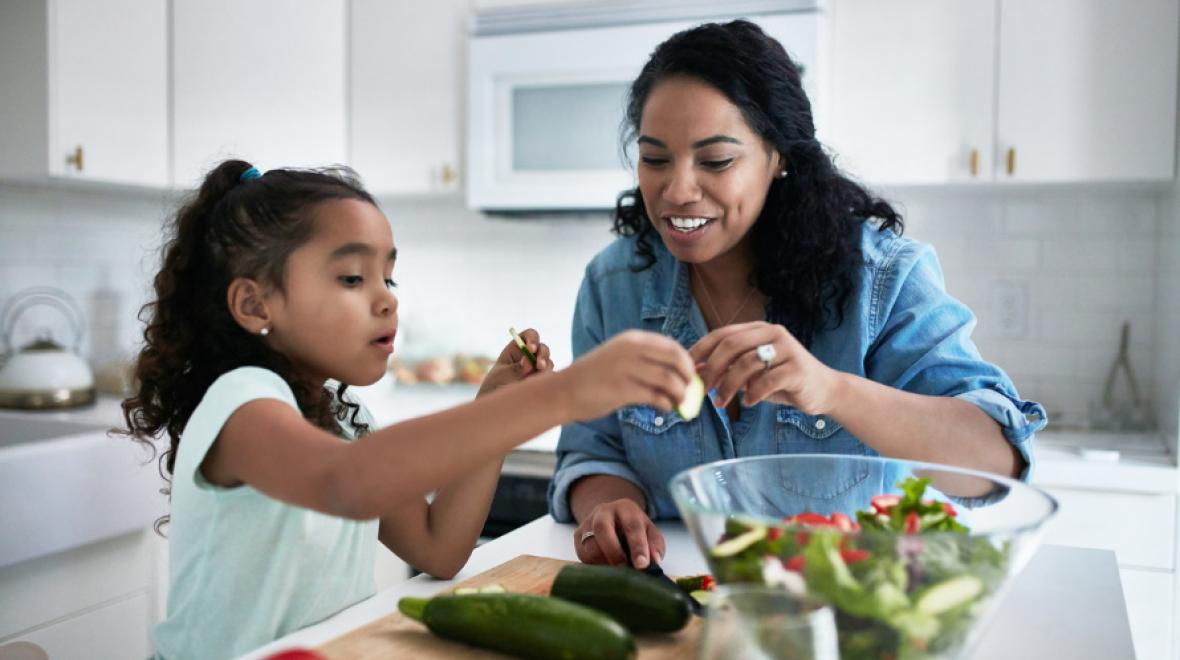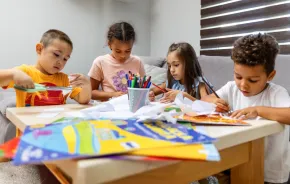
A friend of mine with teenagers asked me one day: “What did you do when you raised your girls that not only gave them great college choices, but made them so successful once they got there?”
At first, I thought she was crazy. It’s not like I raised a couple of natural-born geniuses. I quickly pointed out other moms in the neighborhood whose kids attended Berkeley and Princeton.
She shook her head and said, “That’s not what I’m talking about. I realize there are naturally gifted kids who get into top schools without having to try very much. I’m talking about kids like yours, who are smart but work very hard for their accomplishments.”
It got me thinking. I certainly didn’t have a master plan when they were young. I was a single mother through part of their childhood. But both of my girls have work ethics and study habits that I never had at their age. And it paid off big-time when college came around. As I thought about it some more, I came up with this list.
Encourage curiosity and asking questions.
My oldest daughter was one of those kids who couldn’t stop asking “Why?” It drove me crazy at times, but as I look at her now, I understand it was a blessing. She still loves searching for answers, which has made her an incredible student and an interesting human being. I am happy that back when she was in preschool I had the presence of mind (most of the time) to thoughtfully answer her questions and encourage her to ask more.
Ask your children questions, too. If they say they like their new teacher at school, ask them why. When you get more than a simple yes or no answer from them, you’ll learn a lot about their view of the world, and you’ll be encouraging curiosity.
Teach them the word “no.”
Teaching your child to hear the word “no” helps them cope early with the fact that not everything will always go their way. It’s also equally important to help them deal with the emotions resulting from rejection. If they cry and scream when you tell them, “No, you can’t have that,” help them calm down and acknowledge that it’s hard not to get what you want.
Rather than giving in, you are doing them a favor by teaching them to deal with the realities of the world. This will foster confidence and independence, and help them be successful when they get to college and are living on their own for the first time.
Use teaching tools early.
When your kids are young, use teaching tools for playtime, such as flashcards, educational toys and games. As my girls got older, I would have them do workbooks over the summer for the grade they were going into the next school year. We would work on them periodically, and if they both finished, my husband and I would offer a prize of some kind (a trip to the zoo or a special evening out).
As they got older, it turned into a small monetary reward. This kept up their skills over the summer, and we found they went into the new school year with more confidence.
Read, read, read!
We all have heard about the importance of reading to a child. I truly believe reading with your children will help to set them up for success. Read to them every day when they’re young.
As my girls got older, they read to me. I’ll never forget when my oldest read to me from the first Harry Potter book in sixth grade. It was so much fun to listen to her read, and then we’d discuss the chapter together. It made for a wonderful memory that we still talk about.
Make sure your kids see you with a book, magazine or tablet in hand as well. Modeling reading is powerful stuff. I know for certain my love of books came directly from my father, who was an avid reader until he died at age 90.
Begin good study habits early.
As soon as your kids get their first homework assignment, get them into the habit of doing it right away (following a snack and 30 minutes or so of downtime). I began to implement this in kindergarten, and my daughters have always had great study skills. In fact, I often think this may be the single best habit I ever instilled in them. (It’s okay to resort to a little bribe here, too, like “When you’re done, we can bake cookies!”)
Google it together.
If you don’t know the answer to their question, why not find it together? Learning together is a great teaching opportunity. It will also remind them that as an adult, you don’t always have all the answers. Plus, you’ll be demonstrating how curiosity and learning can continue throughout life.
Use the computer with them.
We all have heard about the evils of too much computer time without supervision, and that danger cannot be overstated. But computers can be a great teaching tool when used with discretion and supervision. There are some wonderful educational programs out there to make learning fun that you can enjoy together. And if you explore those programs with your children while they’re young, it will give you an opportunity, as they get older, to talk about the potential dangers, pitfalls and proper uses of technology.
Let them help out in the kitchen.
It can get messy, that’s for sure. But letting your children help out in the kitchen is a great gift to them. Not only are they learning measurements and math, but you will also be teaching them an important skill early in life, which in turn will foster confidence and independence. Not to mention the parental rewards: The smiles that my girls had the first time we made cookies together were priceless.
Find role models early.
Don’t let your kids turn to the media to find early role models. Young kids love nothing more than looking up to “big kids.” Finding the right ones to spend time with your children will be invaluable. I was fortunate to find babysitters and older children of friends who were smart, savvy and went far in high school and college. (It could also be a niece, nephew or other family member.)
We stayed in touch with one in particular, and now my daughter babysits for her! I remember one of my girls telling me years ago that she wanted to be “just like Sarah” when she grew up. At that time, Sarah had entered the University of Washington and was on the dean’s list. Not too bad.
Let them fail.
There is a fine line between “helping” your kids with homework and doing it for them. This one was tough for me at times. But I realized (with the help of my husband) that they needed to accomplish it on their own. Part of that was letting them fail — not an easy thing to do. The truth is, as I look back, those were the times they learned the most.
Getting a poor score on a test was a teaching opportunity for me as a parent. They needed to learn how to ask for help and to understand there was no shame in asking. My youngest daughter once called from college bursting with pride about how she turned a terrible test score in accounting (after having studied for many hours) into an “A” on the midterm by showing up at her professor’s office hours weekly until she was certain she had a grasp on the material.
For a parent, it doesn’t get any better than that.
Editors Note: This article was originally published in April 2015 and updated in July 2020.











